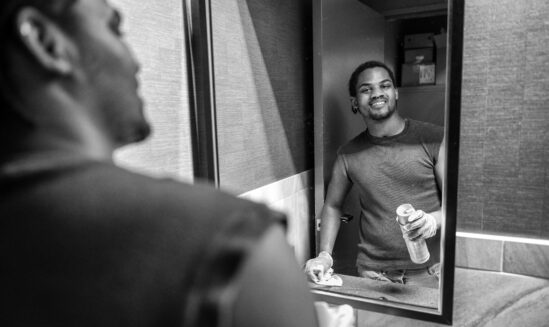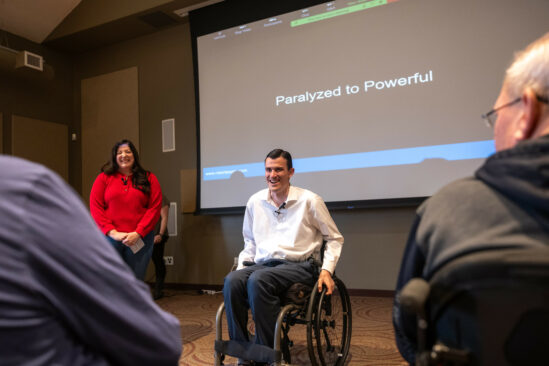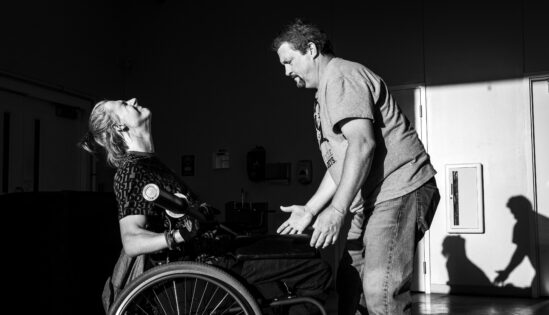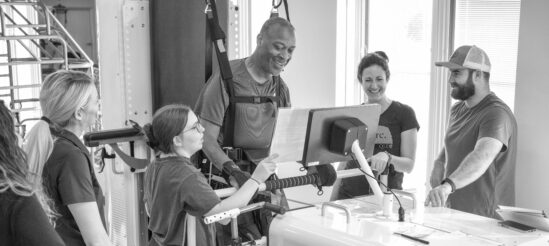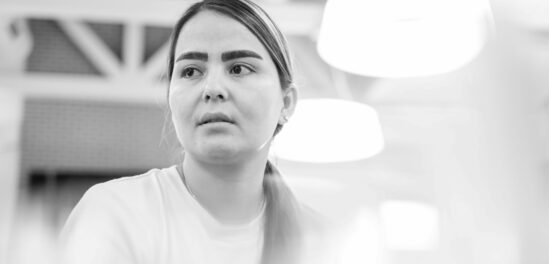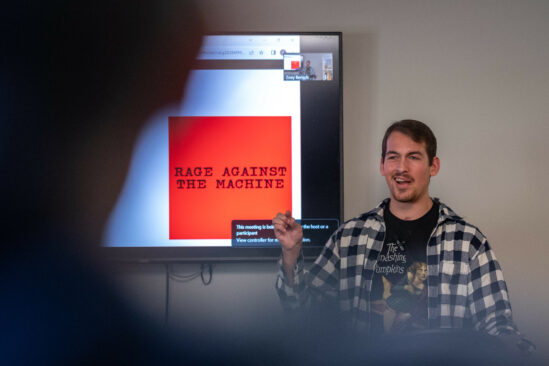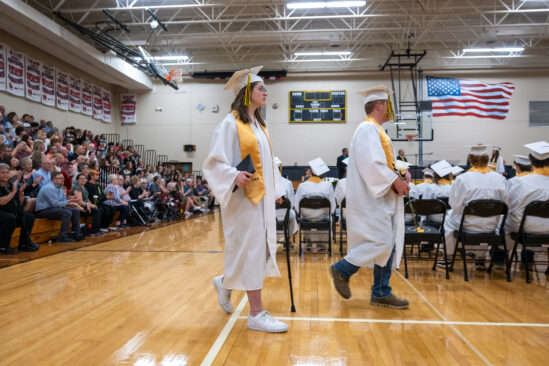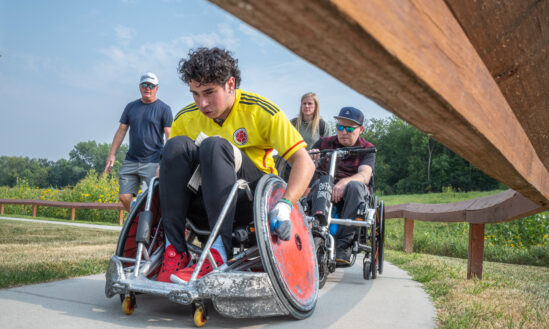Garrett Sherley is a different man now.
He’s a different man than he was in 2014, when—just 21 and stationed in Georgia for his tenure in the United States Army—he suffered a near-fatal brain injury in a motorcycle accident, when doctors were substituting words like “future” and “happiness” with words like “unknown” and “survival.”
And he’s a different man now than he was in 2016, the year he returned to Corning, Iowa, after a long cycle of inpatient rehabilitation at QLI.
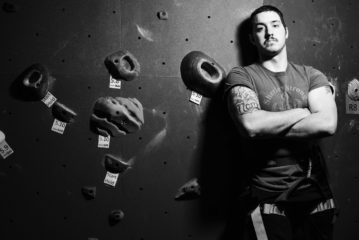 For Garrett, the road to recovery hadn’t found a stopping point. Sure, he had come home a survivor, someone who had endured the traumatic injury and had lived to see new days.
For Garrett, the road to recovery hadn’t found a stopping point. Sure, he had come home a survivor, someone who had endured the traumatic injury and had lived to see new days.
But the conclusion of a hospital stay or a contracted length of therapy didn’t represent the end of his need. At home, hurdles remained. And over the next two and a half years, removed from the oversight of clinical expertise, they became more sharply outlined, left obvious like the missing pieces of a jigsaw puzzle.
Those hurdles were physical: Garrett still mostly relied on a manual wheelchair for daily mobility. Still needed others to transfer him from supine position in bed to his chair.
But those hurdles also manifested elsewhere. Cognitively. Emotionally. A compromised awareness of his own weaknesses meant Garrett often overestimated what he could do. Everyday frustrations were quick to flare his volatile temper. Living at home with his mother, Jennifer, was more often an exercise in difficulty than any manner of reprieve.
Aware of Garrett’s persisting struggles, QLI pitched the idea of hosting a “boot camp” for Garrett in early 2019. More than a second round of rehabilitation, the four-week boot camp would offer intensive training designed to supercharge his specific strengths and fortify his ongoing areas of growth.
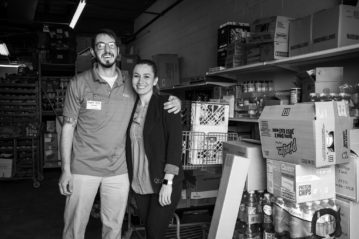 “Our priority with the boot camp was to address Garrett’s behavior by structuring his day-to-day activities,” says Brandi Madsen, QLI’s vocational specialist. “How do we reset the way he operates in social environments? How do we ensure he’s not only active, but participating in things that hold real value, things that would give him real motivation?”
“Our priority with the boot camp was to address Garrett’s behavior by structuring his day-to-day activities,” says Brandi Madsen, QLI’s vocational specialist. “How do we reset the way he operates in social environments? How do we ensure he’s not only active, but participating in things that hold real value, things that would give him real motivation?”
Much of that social rewiring came in the form of one-on-one training with Madsen, where, together, she and Garrett identified appropriate responses in dynamic social situations and practiced embracing feedback from mentors, instructors, and personal coaches.
Garrett’s small, tight-knit QLI team turned every moment of difficulty and strain into a moment of training.
That training was given real-world practice in the other parts of Garrett’s four-week stay: with physical therapists, for instance, who pushed him to build more confidence walking—using the crutches he despised, or a single cane, or only his returning natural balance.
The boot camp may have been less than a month. But that time was filled with near-constant deliberate coaching and tremendous repetition—the exact tools needed to make Garrett’s new skills automatic.
“What I wanted was for Garrett to have some acceptance and become strong in that way,” says Jennifer Hoskins, Garrett’s mother. “And what I saw was real change. I wish I knew how to explain how it happened. But he came back more respectful. More focused. More positive about taking on challenges. And more able to take feedback when we have it.”
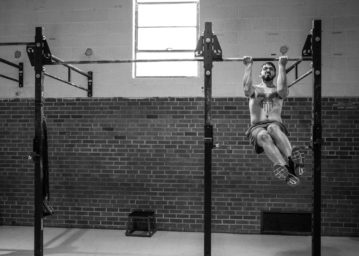 Five years after his injury, three years after the formal end of his rehabilitation, and eight months after an intermediary boot camp, Garrett Sherley is a different man.
Five years after his injury, three years after the formal end of his rehabilitation, and eight months after an intermediary boot camp, Garrett Sherley is a different man.
Life for the 26-year-old isn’t punctuated by overnight change. There isn’t a switch to flip, no single cure-all, that will make the effects of his injury go away.
Instead, there is work ethic. Determination. Each day—each action—a consistent movement toward the reality of being self-sufficient. Rather a story of distance covered in baby steps than a story of dramatic leaps.
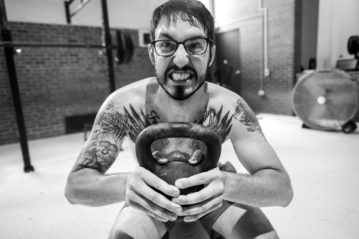 That ferocious work ethic is clearest when Garrett drives the thirty-minute span down Highway 34 to nearby Creston, Iowa. It’s where he goes for CrossFit multiple times a week, a passion sparked by his brief stint with QLI’s GRIT program. A battery of modified pull-ups and seated rows only motivate him to devote more effort, to gnash his teeth and push through the fatigue, as if each rep might be the one to shatter the ceiling his injury has built overhead.
That ferocious work ethic is clearest when Garrett drives the thirty-minute span down Highway 34 to nearby Creston, Iowa. It’s where he goes for CrossFit multiple times a week, a passion sparked by his brief stint with QLI’s GRIT program. A battery of modified pull-ups and seated rows only motivate him to devote more effort, to gnash his teeth and push through the fatigue, as if each rep might be the one to shatter the ceiling his injury has built overhead.
“I’m amazed at what he can do. At what he continues to do,” Jennifer says.
Things are better between them since the boot camp. And, in turn, Garrett is scratching at the independence he’s wanted since rehabilitation.
The pair have worked for most of the year to renovate—”gutted to the studs,” as Jennifer describes it—the house’s walkout basement into a self-contained apartment space, complete with a kitchenette and its own bathroom. It’s close enough for Jennifer to be present if Garrett needs—and vice versa—but represents the first time Garrett has lived independently since the crash.
 He’s seen growth in all aspects of his life. Even at the local grocery store, where Garrett has stocked shelves off and on since before the QLI boot camp.
He’s seen growth in all aspects of his life. Even at the local grocery store, where Garrett has stocked shelves off and on since before the QLI boot camp.
Part of that is a credit to the improvement of Garrett’s gait. Not so long ago he needed both of his forearm crutches to keep stable. He’s down to one forearm crutch now. Occasionally, only a simple walking cane. Sometimes, a shopping cart heavy with boxed goods is enough to steady his gait. And when really confident, he’ll heft entire bags of trash to the dumpster behind the store without the help of any device at all.
Yet even the responsibilities are changing. In recent weeks, he’s been asked to pilot the register as a cashier—a testament to others’ trust in his burgeoning strengths.
He has aspirations for his future—among them, a potential commitment to a college education. Perhaps putting in the work needed to earn a coaching certificate to volunteer with the town’s high school football team. He talks of eventually working on cars for a living, a callback to his passion for automobile engineering and his pre-injury love for motorcycles.
But for the most part, Garrett takes each day on its own. Not swinging for the big home runs, but rather seeking the base hit. One after another, the small successes that accumulate into a greater achievement.
Garrett Sherley is a different man now. And he’s not finished yet.




